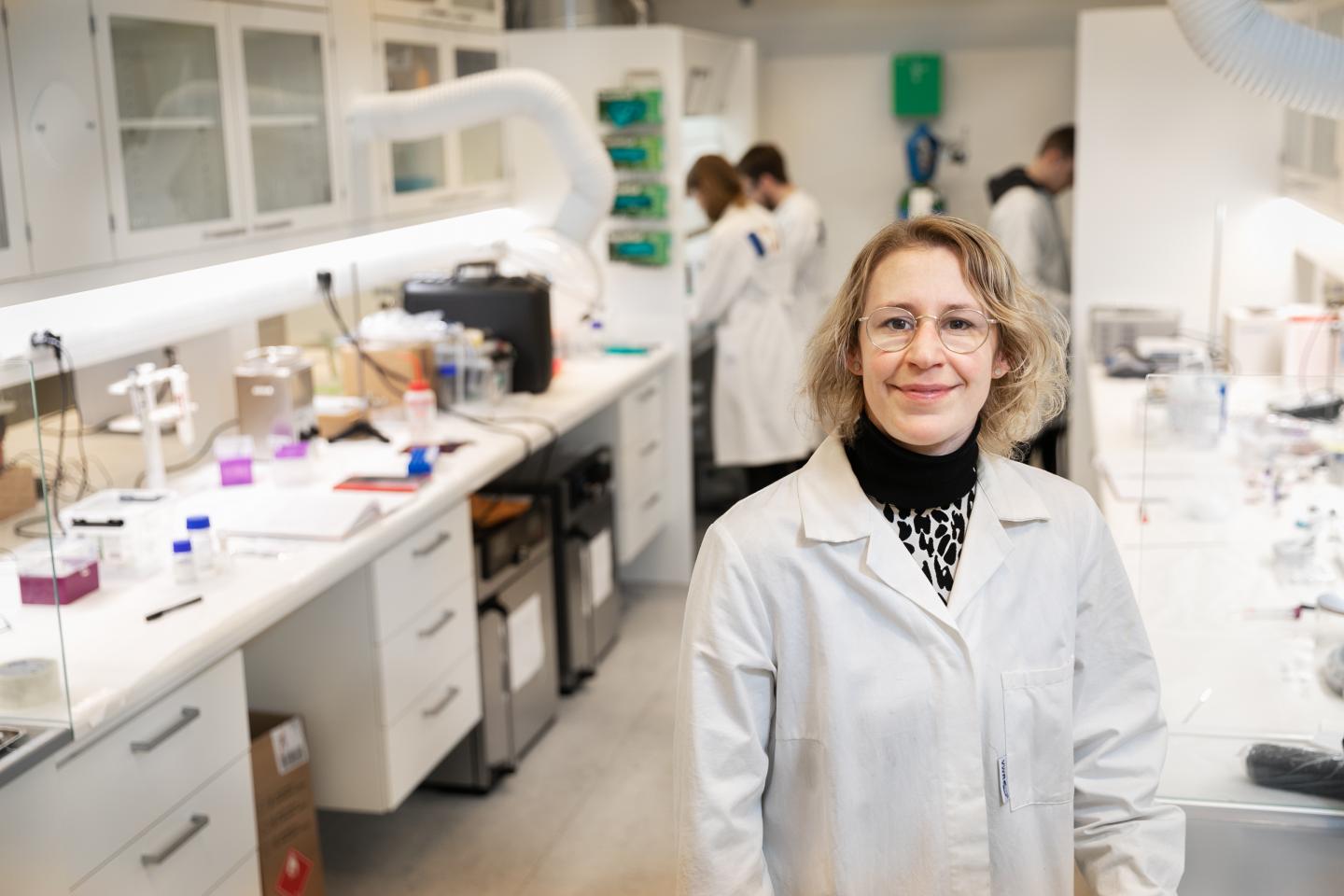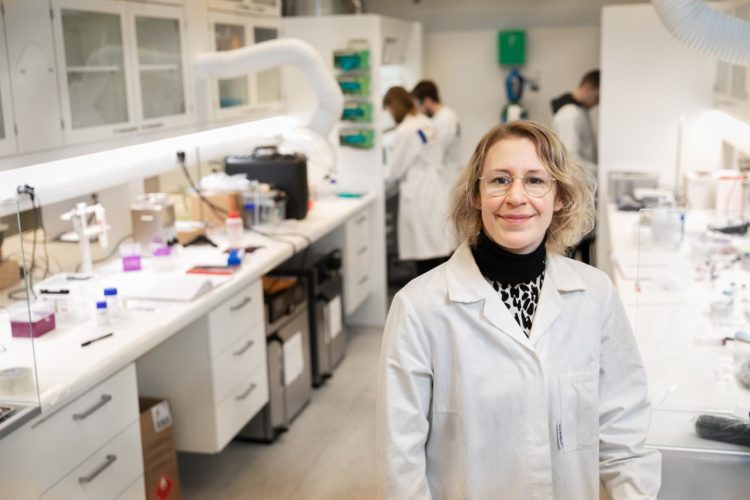Associate Prof. Nina Lock from the Department of Engineering has received a grant of DKK 4.3 million (EUR 0.6 mill.) from the Carlsberg Foundation to develop an entirely new material which, through electrocatalysis, can transform CO2 into useful products

Credit: Ida Marie Jensen, AU Foto
Associate Professor Nina Lock from the Department of Engineering has received a grant of DKK 4.3 million (EUR 0.6 mill.) from the Carlsberg Foundation to develop an entirely new material which, through electrocatalysis, can transform CO2 into useful products.
Imagine a machine that sucks in CO2 from the air at one end and spits out fuel or other useful products from the other. This is the idea behind Associate Professor Nina Lock’s new project, ‘Rational development of inexpensive and scalable electrocatalysts’, which has received DKK 4.3 million from the Carlsberg Foundation as a ‘Young researcher Fellowship’ grant.
“Humanity is facing a huge problem in relation to both climate change and limited carbon-based resources. We need to find other sources of carbon, and if we can convert CO2 from a waste product into something useful, we can help solve both issues at the same time,” says the associate professor about the overall motivation behind the project.
“On a more personal note, I also have to admit that it’s just a really exciting project,” she continues.
Associate Professor Nina Lock is an expert in hybrid materials, and much of her work is on reduction of CO2. Her idea in this project is to develop new metal-organic materials that work a bit like a sponge.
“We want to create a metal-organic network composed of metal centres connected to organic molecules that together form a porous network – a bit like a sponge with pores in which CO2 can diffuse,” says Nina Lock.
After the CO2 has been diffused inside the ‘sponge’, by means of an electro catalysis it will be converted into another product, e.g. fuel such as methanol or methane, or building blocks for the chemicals industry, after which the product can diffuse out of the pores again.
“The aim is to develop scalable catalysts so that we can use this industrially. This means that we need to create a system based on cheap elements and not, for example, precious metals,” says the associate professor.
The project also includes a study of how electro-catalysis takes place at atomic level.
“We also want to investigate what happens to the structure of the catalyst during the process. What’s happening at atomic level when we run electricity through our catalyst? We actually know very little about this today. We need to find a material where this works, and then we need to find out exactly why it works,” she says.
“Therefore, the research team will take a sort of X-ray of the process itself, so that we can see exactly what’s happening.”
In November, the Carlsberg Foundation granted DKK 204 million (EUR 27.2 mill.) to 134 young up-and-coming researchers and young newly appointed associate professors with visionary research ideas and projects. Thirty researchers from Aarhus University have received grants totalling more than DKK 47 (EUR 6.3 mill.) million.
With the grants, Aarhus University has received more than DKK 121 million (EUR 16 mill.) from the Carlsberg Foundation on the basis of applications submitted to the Foundation in 2019. Total grants from the Carlsberg Foundation amounted to more than DKK 400 million (EUR 53.3 mill.) based on calls in 2019.
###
Media Contact
Nina Lock
[email protected]
45-93-52-18-16





